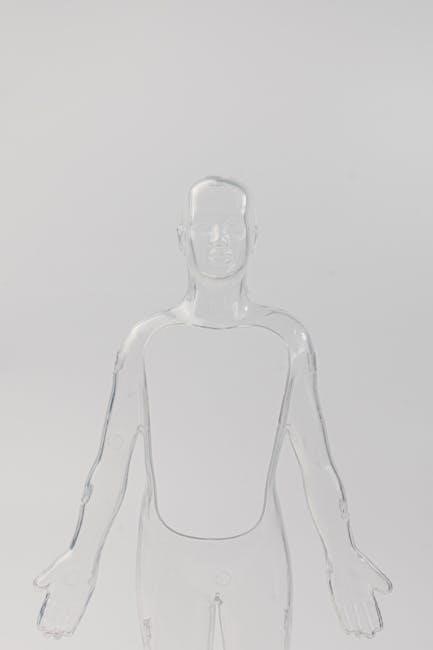The nursing curriculum PDF serves as a comprehensive guide for nursing education, outlining foundational concepts, evidence-based practices, and professional growth opportunities. It ensures a structured approach to developing clinical skills, ethical awareness, and cultural competence, aligning with industry standards and NCLEX preparation needs. This resource is essential for both students and educators, providing a clear framework for nursing education and practice.
Overview of Nursing Education
Nursing education provides a structured pathway for students to acquire the knowledge, skills, and competencies essential for professional practice. The curriculum is designed to align with industry standards, such as the NCLEX-RN Test Plan, ensuring future nurses are well-prepared for licensure and practice. It incorporates foundational concepts like evidence-based practice, cultural competence, and legal-ethical considerations, fostering a holistic understanding of patient care. The curriculum also emphasizes clinical training, enabling students to apply theoretical knowledge in real-world settings. By integrating technology and informatics, nursing education equips students with the tools to navigate modern healthcare environments. This comprehensive approach ensures graduates are not only skilled practitioners but also compassionate caregivers, ready to meet the evolving needs of diverse patient populations and healthcare systems.
Importance of a Well-Structured Nursing Curriculum
A well-structured nursing curriculum is essential for ensuring that students receive a comprehensive and cohesive education. It provides a clear framework for learning, aligning with industry standards and professional requirements. A structured curriculum ensures consistency in teaching and learning outcomes, preparing nurses to meet the demands of modern healthcare. It also fosters critical thinking, clinical reasoning, and ethical decision-making, which are vital for patient care. By incorporating evidence-based practice and simulation-based training, the curriculum equips students with practical skills and real-world application. This structured approach ensures that graduates are well-prepared to address diverse patient needs, work collaboratively in healthcare teams, and adapt to evolving healthcare trends. Ultimately, a well-designed curriculum lays the foundation for producing competent, compassionate, and forward-thinking nurses.

Theoretical Foundations of Nursing
Theoretical foundations of nursing provide the intellectual framework for understanding nursing practice, education, and research. They include nursing theories, models, and evidence-based principles guiding care delivery and professional identity.
Nursing Theories and Models
Nursing theories and models form the cornerstone of nursing education, providing frameworks for understanding patient care, professional roles, and clinical decision-making. These theories, such as Leininger’s Culture Care Theory and Watson’s Caring Theory, emphasize holistic patient care and the nurse-patient relationship. Models like the Nursing Process Model guide systematic care delivery, while others, such as Newman’s Theory of Health as Expanding Consciousness, focus on the patient’s evolving health journey. These frameworks are integrated into nursing curricula to foster critical thinking and evidence-based practice. By studying these theories, nurses develop a deep understanding of their profession’s philosophical underpinnings, enabling them to deliver compassionate, culturally competent, and patient-centered care. Such knowledge is essential for preparing practice-ready graduates who can navigate the complexities of modern healthcare systems.
Evidence-Based Practice in Nursing Education
Evidence-based practice (EBP) is a cornerstone of modern nursing education, emphasizing the integration of clinical expertise, patient values, and the best available research evidence. Nursing curricula incorporate EBP to ensure students learn to critically appraise and apply research findings to patient care. This approach fosters a culture of lifelong learning, preparing nurses to deliver high-quality, safe, and effective care. By teaching EBP, educators equip future nurses with the skills to question practices, evaluate outcomes, and adapt to evolving healthcare needs. The curriculum often includes training in research methodologies, statistical analysis, and the use of evidence-based guidelines, ensuring graduates are proficient in translating research into practice, ultimately improving patient outcomes and advancing the nursing profession.

Clinical Skills and Training
Clinical skills and training are essential in nursing education, providing hands-on experience through simulation-based learning and real-world patient interactions. Foundational skills include patient assessment and vital sign monitoring, while advanced training covers complex procedures like wound care and critical care interventions, ensuring nurses are practice-ready upon graduation. These practical experiences are integrated into the curriculum to enhance clinical competence and decision-making abilities, preparing students for diverse healthcare settings and patient needs. The use of patient simulators and clinical labs further reinforces these skills, bridging the gap between theory and practice effectively. This comprehensive approach ensures nurses are well-prepared to deliver safe, effective, and compassionate care. By focusing on both foundational and advanced skills, the curriculum equips future nurses with the tools needed to excel in their profession. The integration of clinical training with theoretical knowledge creates a well-rounded educational experience, enabling students to confidently transition into clinical practice. Through continuous practice and feedback, nursing students refine their skills, ensuring they meet the high standards of patient care. This emphasis on clinical skills and training is a cornerstone of nursing education, fostering professionalism and expertise in the field. The curriculum’s focus on practical application ensures that graduates are not only knowledgeable but also skilled and capable of handling real-world challenges in healthcare settings. By prioritizing clinical skills and training, nursing programs produce competent practitioners who can make a meaningful impact in patient outcomes and healthcare delivery. The structured approach to clinical education ensures that students gain the necessary proficiency to excel in their roles as future nurses. This commitment to excellence in clinical training underscores the importance of nursing education in preparing the next generation of healthcare professionals. The combination of theoretical learning and practical experience creates a robust foundation for nursing students, enabling them to provide high-quality care with confidence and precision. Through rigorous clinical training, nursing programs empower students to master the skills required to excel in the demanding and rewarding field of nursing. The emphasis on clinical skills and training is a testament to the nursing curriculum’s dedication to producing capable and compassionate healthcare providers. By integrating advanced simulation technologies and hands-on training, the curriculum ensures that students are well-equipped to handle the complexities of modern healthcare. The focus on clinical skills and training is vital in preparing nursing students for the challenges they will face in their careers, ensuring they are ready to provide exceptional patient care. The nursing curriculum’s strong emphasis on clinical skills and training is essential for producing competent and confident nurses who can excel in various healthcare environments. This approach not only enhances technical proficiency but also fosters critical thinking and problem-solving abilities, which are crucial in nursing practice. By providing extensive clinical training opportunities, the curriculum ensures that students gain the practical experience needed to succeed in their future roles. The integration of clinical skills and training into the nursing curriculum is designed to produce graduates who are skilled, knowledgeable, and prepared to meet the demands of the healthcare industry. Through a combination of simulation-based learning and real-world clinical experiences, the curriculum provides students with a comprehensive education that prepares them for the realities of nursing practice. The focus on clinical skills and training ensures that nursing students develop the expertise needed to deliver high-quality patient care in a variety of settings. This emphasis on practical training is a key component of the nursing curriculum, enabling students to transition seamlessly from education to practice. By prioritizing clinical skills and training, nursing programs ensure that graduates are well-prepared to make a positive impact in the lives of their patients. The structured approach to clinical education within the curriculum allows students to build confidence and competence in their abilities, setting them up for success in their nursing careers. The combination of theoretical knowledge and hands-on training in clinical skills ensures that nursing students are fully prepared to excel in the field of nursing.
Foundational Nursing Skills
Foundational nursing skills form the cornerstone of nursing education, equipping students with essential competencies for patient care. These skills include patient assessment, vital sign monitoring, infection control practices, and basic care procedures. Simulation-based learning and clinical labs provide hands-on opportunities to master these skills. Emphasis is placed on developing clinical judgment and decision-making abilities. Foundational skills are taught early in the curriculum, laying the groundwork for advanced training. They ensure nurses can safely and effectively perform routine tasks, such as administering medications and managing wounds. These skills are critical for building confidence and competence in clinical practice. The curriculum integrates these foundational elements with theoretical knowledge, ensuring a holistic approach to nursing education. Mastery of these skills is vital for delivering high-quality, patient-centered care and preparing students for more complex clinical challenges. By focusing on these core competencies, the curriculum ensures future nurses are well-prepared to excel in their roles.
Advanced Clinical Procedures and Simulation
Advanced clinical procedures and simulation-based training are integral to nursing education, enabling students to master complex skills in a controlled environment. Simulation labs replicate real-life scenarios, allowing students to practice high-acuity care, such as surgical interventions and critical care management. These sessions enhance clinical judgment and decision-making while minimizing risks to real patients. Advanced procedures, including intravenous therapy and advanced wound care, are taught through hands-on practice and guided instruction. Simulation also fosters teamwork and communication, essential for interdisciplinary collaboration. By integrating evidence-based practices and emerging technologies, these training methods prepare students for the demands of modern healthcare. Simulation-based learning is particularly valued for its ability to improve patient safety and readiness for clinical practice, ensuring graduates are proficient in advanced procedures and critical care situations. This approach bridges the gap between theory and practice, enhancing overall competence and confidence in nursing students.

Professional Development in Nursing
Professional development in nursing focuses on fostering legal, ethical, and professional competencies. It emphasizes the importance of adhering to standards, understanding roles, and maintaining accountability in practice.
Legal and Ethical Considerations
Legal and ethical considerations are fundamental to nursing education, ensuring nurses understand their roles within legal frameworks and ethical standards. These principles guide decision-making, patient confidentiality, and informed consent. Nurses must adhere to laws like the Wisconsin Nurse Practice Act and international standards such as GDPR for data protection. Ethical theories, including beneficence, non-maleficence, autonomy, and justice, shape nursing practices. The curriculum emphasizes the importance of professionalism, accountability, and cultural sensitivity. Faculty use real-world scenarios and case studies to teach ethical reasoning and legal implications, preparing students to navigate complex situations. This section ensures future nurses are equipped to provide care that respects patient rights and upholds ethical standards, fostering trust and integrity in healthcare. Legal and ethical competencies are vital for safe, compassionate, and responsible nursing practice. They form the cornerstone of professional development and patient-centered care.
Professional Roles and Responsibilities
Professional roles and responsibilities in nursing are diverse, encompassing direct patient care, leadership, education, and advocacy. Nurses serve as patient advocates, ensuring individualized care that respects patient preferences and values. They collaborate with interdisciplinary teams to achieve holistic patient outcomes. The curriculum emphasizes the development of critical thinking, communication, and problem-solving skills essential for professional practice. Nurses are also responsible for maintaining accurate records, adhering to evidence-based practices, and staying updated on healthcare advancements. Professional accountability includes upholding standards of practice, respecting confidentiality, and committing to lifelong learning. These roles prepare nurses to work in various settings, from acute care to community health, addressing the evolving needs of patients and healthcare systems. The curriculum ensures students understand their responsibilities as future professionals, fostering a commitment to excellence and patient-centered care.

Nursing Curriculum Design and Implementation
Nursing curriculum design involves a systematic approach to creating educational frameworks that align with industry standards and student needs, ensuring effective implementation and continuous improvement in nursing education.
Curriculum Development Process
The curriculum development process in nursing education involves a systematic approach to creating educational frameworks. It begins with identifying learning objectives and outcomes, ensuring alignment with industry standards and accreditation requirements. Faculty and experts collaborate to select relevant content, balancing theoretical knowledge with practical skills. The process also considers the institution’s unique needs and resources. Once the curriculum is designed, it is implemented through structured courses and clinical training. Continuous evaluation and feedback from students, educators, and healthcare professionals ensure the curriculum remains relevant and effective. This iterative process allows for ongoing refinement, adapting to advancements in healthcare and educational methodologies. Ultimately, the goal is to produce graduates who are well-prepared to meet the demands of the nursing profession.
Integrating Technology and Informatics
Integrating technology and informatics into nursing education enhances the learning experience by incorporating digital tools and data-driven practices. Electronic Health Records (EHRs) and simulation software are key components, enabling students to practice clinical decision-making in controlled environments. Telehealth platforms also prepare nurses for remote patient care. Informatics education ensures proficiency in data analysis, improving patient outcomes through evidence-based care. Open educational resources and digital textbooks provide accessible learning materials. The curriculum emphasizes ethical use of technology and patient data privacy. By integrating these tools, nursing programs equip students with the skills to adapt to evolving healthcare systems and deliver high-quality, technology-supported care. This alignment with modern healthcare practices ensures graduates are proficient in both clinical and technological aspects of nursing.

Assessment and Evaluation
Assessment and evaluation in nursing education ensure student competence and readiness for practice. Methods include quizzes, simulations, and NCLEX prep, providing feedback for continuous improvement and professional licensing preparedness.
NCLEX Preparation and Test Plans
NCLEX preparation is integrated into nursing curricula to ensure students are ready for licensing exams. The 2019 NCLEX-RN Test Plan and 2020 NCLEX-PN Test Plan guide curriculum development, focusing on patient safety, care coordination, and pharmacological therapies. Educational resources, such as mock exams and test-taking strategies, are emphasized to improve student outcomes. Faculty often incorporate practice questions and case studies aligned with exam content to familiarize students with the format and rigor of the NCLEX. Regular assessments and feedback loops help identify knowledge gaps, enabling targeted interventions. The Wisconsin Nurse Practice Act also influences curriculum design, ensuring legal and ethical standards are met. By aligning education with NCLEX requirements, nursing programs aim to produce practice-ready graduates who can successfully navigate the licensing process and deliver high-quality patient care. This structured approach ensures comprehensive preparation for the demands of professional nursing.
Evaluation Methods in Nursing Education
Evaluation in nursing education involves assessing student learning through various methods to ensure competence and readiness for practice. Common approaches include written exams, clinical simulations, and objective structured clinical examinations (OSCEs). These tools measure theoretical knowledge and practical skills, ensuring alignment with curriculum goals. Feedback from faculty and peers is crucial for improvement, while self-assessment helps students identify personal growth areas. Continuous evaluation ensures that graduates meet professional standards and are prepared to address diverse patient needs effectively. Regular assessments also allow educators to refine curricula, ensuring relevance and effectiveness in producing practice-ready nurses. This systematic approach ensures nursing education remains rigorous, patient-centered, and aligned with industry demands.

Cultural Competence in Nursing
Cultural competence in nursing refers to understanding diverse patient values, beliefs, and practices. It ensures respectful, individualized care and fosters trust in cross-cultural interactions. Essential in nursing education.
Culture of Nursing and Patient Care
The culture of nursing emphasizes empathy, respect, and patient-centered care. It involves understanding diverse patient backgrounds and tailoring care to meet individual needs. Nursing education highlights the importance of cultural competence, ensuring nurses can provide inclusive, compassionate care. This fosters trust and improves health outcomes. The curriculum often includes modules on cultural awareness, communication strategies, and ethical considerations. By integrating these principles, nurses develop the skills to navigate diverse patient populations effectively. This cultural sensitivity also extends to teamwork, promoting a collaborative environment among healthcare professionals. Ultimately, the culture of nursing is rooted in a commitment to holistic, person-centered care, ensuring every patient feels valued and respected throughout their healthcare journey. This approach is vital for addressing health disparities and enhancing patient satisfaction.
Addressing Diversity in Nursing Education
Nursing education plays a critical role in fostering diversity and inclusion within the healthcare workforce. A well-structured nursing curriculum PDF ensures that students are equipped to care for diverse patient populations by integrating cultural competence, equity, and social justice principles. Educational programs often include case studies, simulations, and discussions that highlight the importance of understanding different cultural, racial, and socioeconomic backgrounds. This approach helps nurses develop empathy and the ability to provide individualized care. Additionally, diversity in nursing education encourages a workforce that reflects the communities it serves, enhancing patient trust and outcomes. By addressing biases and promoting inclusive practices, nursing curricula prepare future professionals to navigate the complexities of a global healthcare environment effectively. This emphasis on diversity ensures that nurses are culturally sensitive and adept at delivering high-quality, person-centered care. Such training is essential for reducing health disparities and improving overall patient satisfaction.

Continuous Improvement in Nursing Education
Continuous improvement in nursing education is achieved through feedback-driven curriculum refinement and adapting to evolving healthcare needs, ensuring nursing education remains current and effective.
Using Feedback for Curriculum Refinement
Using feedback for curriculum refinement is a critical process in nursing education, ensuring the curriculum remains relevant and effective. Feedback is collected from students, educators, and clinical partners to identify strengths and areas for improvement. This data is analyzed to inform updates, such as incorporating new technologies or addressing emerging healthcare trends. Regular feedback loops help nursing programs adapt to changing demands and align with professional standards. By prioritizing feedback, educators can enhance learning outcomes, improve clinical preparedness, and foster a culture of continuous improvement. This iterative process ensures the curriculum evolves to meet the needs of both students and the healthcare industry, ultimately producing practice-ready graduates.
Adapting to Evolving Healthcare Needs
Adapting to evolving healthcare needs is essential for nursing education to remain relevant and effective. The nursing curriculum must incorporate advancements in medical technology, emerging diseases, and shifting patient demographics. Nursing programs are increasingly integrating topics such as telehealth, mental health, and pandemics into their curricula. These updates ensure graduates are prepared to address contemporary challenges. Feedback from healthcare providers and alumni helps identify gaps and inform curriculum revisions. By aligning with industry trends and evidence-based practices, nursing education ensures students develop the skills and knowledge required for modern healthcare environments. This continuous adaptation ensures the curriculum remains responsive to societal and professional demands, producing graduates who are well-equipped to meet the changing needs of the healthcare system.